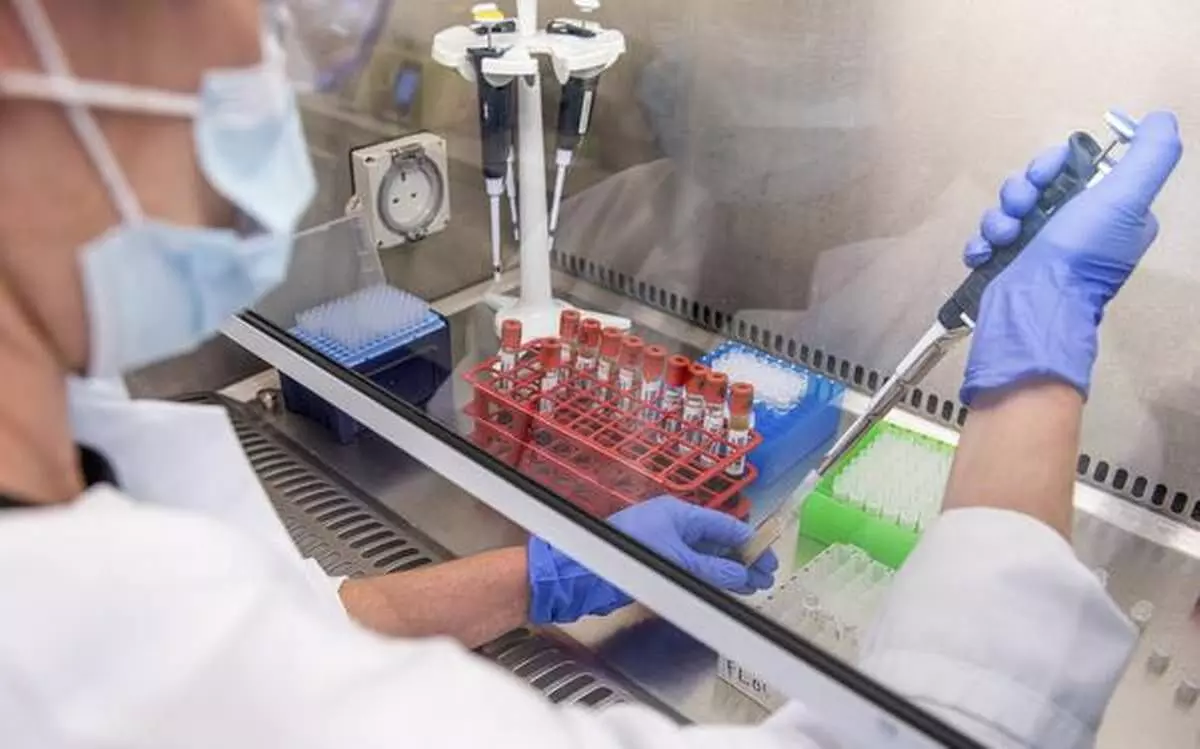
Slight pause for Oxford University COVID-19 vaccine trial, after participant illness
text_fieldsAstraZeneca, the biopharmaceutical giant in tie-up with the university to produce the vaccine, described the pause as a "routine" one following what was "an unexplained illness".
The trials had moved into Phase III after successful Phase I and II testing had raised worldwide hopes of it being ready by early next year as results showed that it produced a positive immune response.
The vaccine moved to Phase III testing in recent weeks, involving around 30,000 participants in the US as well as in the UK, Brazil and South Africa.
"As part of the ongoing randomised, controlled global trials of the Oxford coronavirus vaccine, our standard review process was triggered and we voluntarily paused vaccination to allow a review of safety data by an independent committee," said a spokesperson for AstraZeneca on Tuesday evening.
"This is a routine action which has to happen whenever there is a potentially unexplained illness in one of the trials, while it is investigated, ensuring we maintain the integrity of the trials. In large trials illnesses will happen by chance but must be independently reviewed to check this carefully," the spokesperson said.
Stressing that the adverse reaction involved only a single patient, the spokesperson added that the team is working to expedite the review of the "single event" to minimise any potential impact on the trial timeline.
"We are committed to the safety of our participants and the highest standards of conduct in our trials," the spokesperson said.
Phase III trials in vaccines often involve thousands of participants and can last several years.
For ChAdOx1 nCoV-19, the so-called Oxford vaccine, clinical trial volunteers are located in countries across five continents, including India, the UK, Brazil, South Africa and the US.
Given the urgency to control the spread of the novel coronavirus which has claimed thousands of lives around the world, it was hoped the trials would be speedier and that a vaccine may be ready as early as January 2021.
he Oxford University's Jenner Institute team started working to develop a vaccine against the SARS-CoV-2, or the virus which causes Covid-19, in January this year and says it has been working with "unprecedented urgency" in a race against the coronavirus.
Phase I and II results had proved positive as they showed that the vaccine induced strong antibody and T-cell immune responses for up to 56 days after they were given. T-cells are crucial for maintaining protection against the virus for years.
"There is still much work to be done before we can confirm if our vaccine will help manage the COVID-19 pandemic, but these early results hold promise," said Professor Sarah Gilbert, co-author of the study, had said back in July.
"As well as continuing to test our vaccine in Phase III trials, we need to learn more about the virus – for example, we still do not know how strong an immune response we need to provoke to effectively protect against SARS-CoV-2 infection. If our vaccine is effective, it is a promising option as these types of vaccine can be manufactured at large scale," she said.
During the study, participants who received the vaccine had detectable neutralising antibodies, which have been suggested by researchers as important for protection, and these responses were strongest after a booster dose, with 100 per cent of participants' blood having neutralising activity against the coronavirus.
The next step in studying any vaccine is to confirm that it can effectively protect against Covid-19 infection.
According to Oxford University scientists, of the hundreds of potential COVID-19 vaccines in development, six are in the final stages of testing, known as phase three clinical trials. One of these – ChAdOx1 nCoV-19 – is the vaccine being developed at the university.
"The purpose of a phase three trial is to assess whether this vaccine-induced immune response is strong enough to actually protect people from COVID-19. Proving this would pave the way for the vaccine to become publicly available," an Oxford University statement explained.
AstraZeneca, the firm partnering Oxford to develop the vaccine, is overseeing a scaling up of manufacturing in parallel with clinical testing so that hundreds of millions of doses can be available if the vaccine is shown to be safe and effective.
The outcome of vaccine trials is being closely watched around the world. It is also seen as a strong contender among dozens being developed globally.
The number of global coronavirus cases has surpassed the 27.5 million mark, with over 897,000 deaths, according to the Johns Hopkins University.






















